Have you ever wondered about the origins of astrology and why it came to be? Well, in this article, we will explore the fascinating history behind the creation of astrology. From ancient civilizations to modern times, we will delve into the reasons why astrology was first conceived and how it has evolved over the centuries. So, get ready to uncover the mysteries of this age-old practice and discover the intriguing motives that led to its inception.
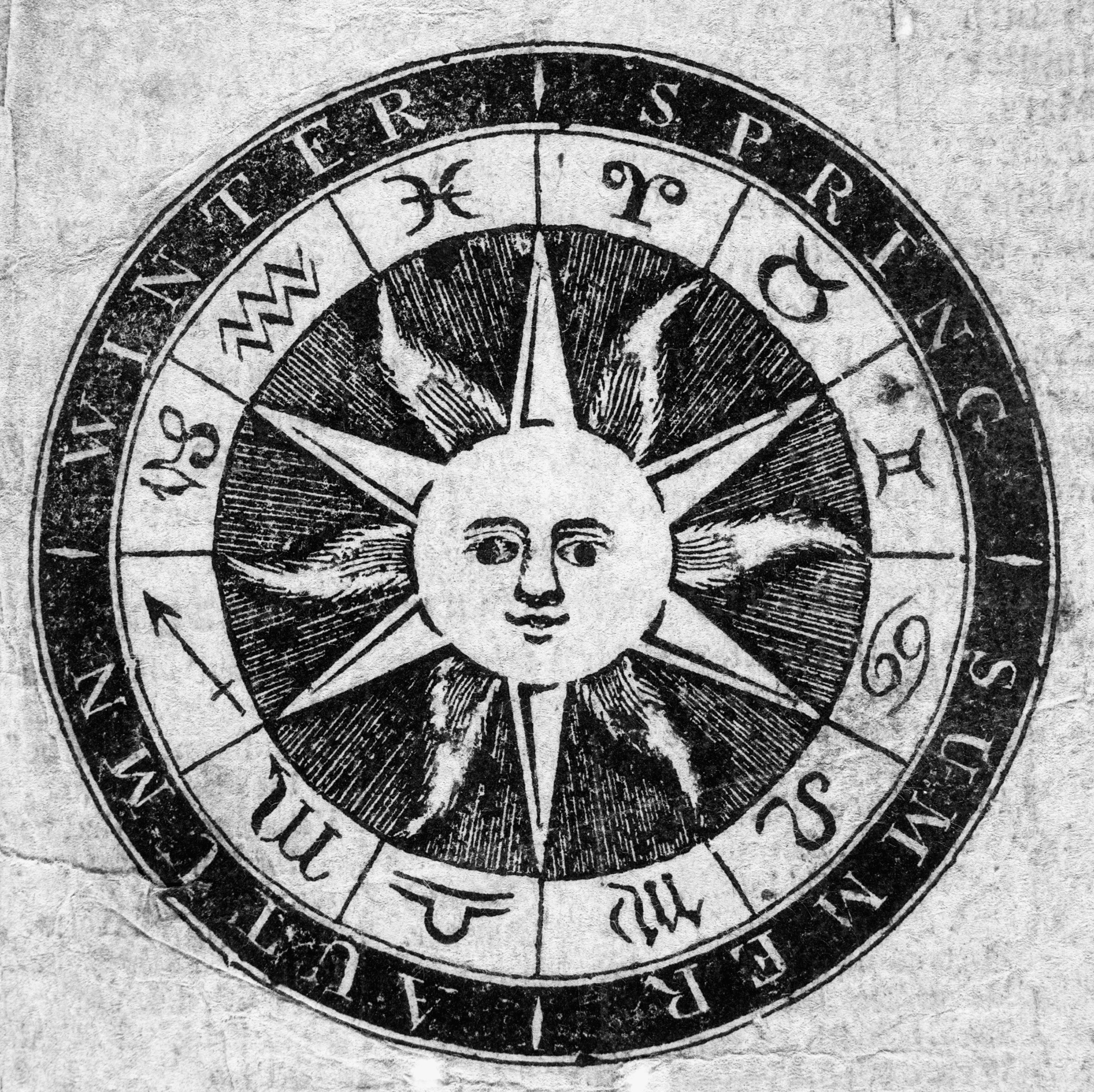
This image is property of api.time.com.
The Origins of Astrology
Ancient Astrological Practices
Astrology, the study of celestial bodies and their influence on human affairs, has a rich and fascinating history that dates back thousands of years. Its origins can be traced to ancient civilizations that observed the movements of the stars and planets, seeking to understand the connections between the heavens and earthly events. The practice of astrology emerged independently in various regions of the world, with each culture developing its own unique system and interpretations.
Early Astrological Systems
Early astrological systems were rooted in the belief that celestial bodies held extraordinary power and influence over the human world. Babylonian astrology, one of the earliest known systems, emerged in ancient Mesopotamia around the 2nd millennium BCE. Babylonian astrologers meticulously recorded celestial observations and charted the positions of heavenly bodies to predict future events and interpret their significance.
Role of Mesopotamia
Mesopotamia, often referred to as the cradle of civilization, played a crucial role in the development of astrology. The Babylonians, Assyrians, and Sumerians made significant contributions to the study of celestial phenomena. They believed that the movements of planets and stars corresponded to the will of the gods and sought to decipher these celestial messages to gain insight into both personal and collective destinies.
Greek Contributions
The ancient Greeks, renowned for their intellectual prowess, also played a pivotal role in advancing astrology. Influenced by the Babylonians, Greek philosophers and astronomers developed their own astrological systems. The works of Greek scholars such as Ptolemy and Hipparchus greatly influenced the foundations of Western astrology. Greek astrology focused on the observation and interpretation of planetary cycles, emphasizing the interconnectedness between celestial phenomena and human affairs.
Development in Ancient China and India
While astrology thrived in Mesopotamia and Greece, similar practices also emerged in other ancient civilizations. In China, astrology was deeply ingrained in the philosophy of Yin and Yang and the Five Elements. The Chinese Zodiac, with its twelve animal signs, became a popular system for understanding personality traits and predicting future outcomes. In India, astrology found its place within the Vedic tradition, where it was regarded as a sacred science known as Jyotish. Vedic astrologers utilized birth charts and planetary positions to divine the future and guide individuals towards a harmonious life.
Tools and Techniques of Astrology
Position of Celestial Bodies
At the core of astrology lies the understanding of the position and movements of celestial bodies. Through careful observation and calculation, astrologers map the positions of planets, the Moon, the Sun, and other celestial objects at a given moment in time. Understanding these positions allows astrologers to interpret the energies and influences that each celestial body exerts and how they may impact human lives.
Zodiac Signs
The Zodiac, a band of the sky divided into twelve equal parts, emerged as a key tool in astrology. Each section, known as a Zodiac sign, corresponds to a specific time period in the year and is associated with a distinct set of characteristics. The Zodiac signs, such as Aries, Gemini, and Capricorn, provide a framework for understanding personality traits, compatibility, and how individuals are influenced by the celestial bodies when they are born.
Birth Charts or Horoscopes
One of the most common techniques used in astrology is the creation of a birth chart, also known as a horoscope. A birth chart is a visual representation of the positions of celestial bodies at the moment of an individual’s birth. It serves as a blueprint that captures the unique influences and potential challenges a person may encounter throughout their life. Birth charts provide valuable insights into one’s personality, relationships, career paths, and life purpose.
Astrological Symbols and Glyphs
Astrology employs a collection of symbols and glyphs to represent planets, signs, and other astrological elements. Each symbol carries its own significance and is unique in its representation. For example, the glyph for the planet Venus resembles a hand-held mirror, symbolizing beauty, love, and relationships. These symbols serve as a visual language that astrologers use to communicate complex astrological concepts and connections.
Astrological Houses
The division of the sky into twelve astrological houses is another fundamental tool in astrology. Each house represents a different area of life, such as relationships, career, and spirituality. They provide a framework for understanding how the celestial bodies and planetary influences manifest in specific aspects of an individual’s life. The interpretation of planets and signs within different houses allows astrologers to provide more precise insights and predictions.
Religious and Spiritual Beliefs
Divination and Prophecy
In many ancient cultures, astrology was intertwined with divination and prophecy. People believed that the movements of celestial bodies held insights into future events and could offer guidance in decision-making. Diviners and astrologers were consulted to gain a deeper understanding of the will of the gods and to navigate the uncertainties of life. Astrology served as a means to seek answers and direction, providing solace and reassurance to individuals facing the unknown.
Associations with Gods and Deities
Astrology has long been intertwined with religious and mythological beliefs. Various civilizations associated celestial bodies with specific gods and deities. These divine beings were believed to exert their influence through the movements of the stars and planets. For example, the Babylonians associated the planet Venus with their fertility goddess Ishtar, while the Greeks connected the planet Mars to the god of war, Ares. Such associations added a spiritual dimension to astrology, emphasizing the interconnectedness between the gods, the cosmos, and human existence.
Destiny and Fate
Astrology’s association with destiny and fate has been a common theme throughout history. Many ancient cultures believed that the positions of celestial bodies at the time of an individual’s birth determined their character, life path, and ultimate destiny. This belief in predestination was rooted in the idea that cosmic forces govern human lives. Whether seen as a comforting notion or a source of resignation, astrology provided a framework to understand one’s place in the grand tapestry of the universe.
Finding Guidance and Meaning
A central motivation for engaging with astrology has been the human desire to find guidance and meaning in life. Astrology offers individuals a tool to gain insights into their strengths, weaknesses, and life’s purpose. By understanding the unique influences and energies associated with their birth chart, individuals can navigate challenges, make informed decisions, and cultivate personal growth. Astrology provides a sense of connection to something greater, serving as a guiding light in the journey of self-discovery.
Predictive and Practical Applications
Forecasting Weather and Natural Disasters
Ancient astrologers often provided weather predictions and forewarned of natural disasters. Studying celestial phenomena allowed them to perceive patterns and correlations that hinted at impending climatic changes. By interpreting the positions and movements of celestial bodies, astrologers speculated on weather patterns, droughts, and floods. Their insights were invaluable in aiding agricultural planning and reducing vulnerability to natural disasters.
Agricultural Planning
In agrarian societies, astrology played a significant role in agricultural planning. Farmers relied on astrological insights to determine the most suitable times for planting, harvesting, and tending to crops. By aligning agricultural practices with the cycles of celestial bodies, farmers aimed to maximize crop yields and ensure a prosperous harvest. Astrology provided crucial guidance, enabling them to work in harmony with the natural rhythms of the cosmos.
Predicting Political Events
Astrology also found its place in the realm of political decision-making. Rulers and statesmen sought astrological advice to anticipate potential political events, conflicts, and alliances. Astrologers analyzed the planetary alignments and celestial omens to gain insight into the fate of nations and the outcomes of battles. Their predictions were believed to offer a glimpse into the future, allowing leaders to make strategic decisions and shape the course of history.
Personalized Predictions and Life Guidance
One of the most enduring applications of astrology has been the provision of personalized predictions and life guidance. Astrologers analyze individuals’ birth charts and interpret the various planetary positions and aspects to offer insights into their personality, relationships, career paths, and life events. Personalized predictions and guidance based on astrology have provided people with a sense of clarity and direction, helping them make informed choices and navigate life’s challenges.
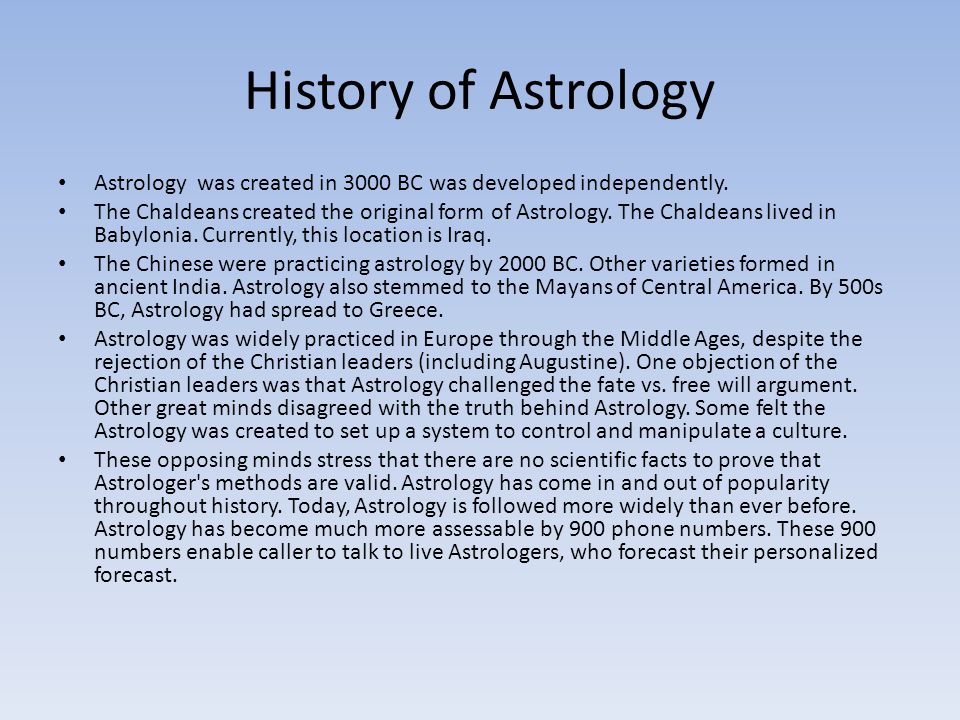
This image is property of slideplayer.com.
Influence of Philosophy and Science
Connections to Astronomy
Astrology and astronomy have long shared a close relationship, intertwining philosophy, science, and celestial observations. In ancient times, astrology was regarded as a part of astronomy, as both sought to understand the movements and behavior of celestial bodies. Astronomy provided the scientific foundation for astrology’s observations and calculations, while astrology infused the study of the stars with philosophical and spiritual dimensions. Over time, the two disciplines gradually diverged, but their intertwined history remains a testament to the rich interplay between science and metaphysics.
Incorporation of Elements and Humors
Ancient astrologers incorporated the concepts of elements and humors derived from ancient Greek and Roman philosophy. Elements such as fire, earth, air, and water were associated with specific traits, and their influence was believed to shape an individual’s character. Humoral theory, derived from the teachings of Hippocrates, posited that the body and mind were influenced by the balance or imbalance of four bodily fluids (blood, phlegm, yellow bile, and black bile). Astrologers integrated these ideas into their interpretations to provide a holistic understanding of an individual’s temperament and well-being.
Integration with Alchemy
In the Middle Ages, astrology became closely intertwined with alchemy, the ancient philosophical and proto-scientific study of nature’s transformation. Alchemists sought to transmute base metals into precious gold and uncover the secret to eternal life. Astrology played a crucial role in alchemical practices, aiding in the identification of optimal timings and celestial configurations for their experiments. The fusion of astrology and alchemy reflected the belief in the interconnectedness between the physical and celestial realms.
Relation to Psychology
Astrology has also influenced the field of psychology, particularly in understanding personality traits and psychological archetypes. Carl Jung, the renowned Swiss psychiatrist and psychoanalyst, recognized the symbolic language of astrology and its resonance with his theories of the collective unconscious and archetypes. Jung believed that astrology provided insights into the deep-seated patterns of the human psyche, allowing individuals to achieve a greater understanding of themselves and their place in the world. This integration of astrology and psychology has shaped modern psychological astrology, offering individuals a tool for self-reflection and personal growth.
Cultural and Societal Significance
Role in Ancient Governance and Decision Making
In ancient times, astrology played a significant role in governance and decision-making. Rulers and political leaders sought astrological counsel to guide their policies, military strategies, and diplomatic endeavors. The positioning of celestial bodies was believed to have a direct impact on the fate of nations, and the insights offered by astrologers were highly valued. Astrology provided rulers with a sense of reassurance and direction, as well as a means to legitimize their rule through a perceived alignment with cosmic forces.
Impacts on Art, Literature, and Architecture
Astrology’s influence extended beyond the realm of governance into art, literature, and architecture. In ancient civilizations, celestial symbolism and representations of zodiac signs were prevalent in artwork and architectural designs. Astrological motifs adorned temples, palaces, and public spaces, serving as a visual representation of the cosmic order and connecting the earthly realm to the celestial sphere. Astrology also made its way into literature, with astrological references and symbolism woven into epic poems, plays, and mythological tales.
Astrology in Medieval and Renaissance Periods
The medieval and Renaissance periods witnessed a flourishing of astrological thought and practice. Astrology was deeply embedded in the intellectual and cultural fabric of these eras, with scholars and theologians engaging in astrological studies. The medieval theologian Thomas Aquinas, for example, explored astrology’s compatibility with Christian theology, while Renaissance philosophers sought to reconcile astrology with the emerging scientific worldview. Astrology informed the work of famous figures such as Leonardo da Vinci, who incorporated astrological symbolism into his art and writings, further solidifying its cultural significance.
Modern Popularity and Psychological Perspectives
In modern times, astrology has experienced a resurgence in popularity. Many individuals turn to astrology as a source of self-exploration, seeking deeper insights into their personalities and life paths. While some embrace astrology as a tool for personal growth and self-reflection, others engage with it purely for entertainment or curiosity. Modern psychological perspectives have contributed to astrology’s popularity by emphasizing its potential as a tool for introspection and self-awareness, highlighting the psychological archetypes and patterns associated with zodiac signs.
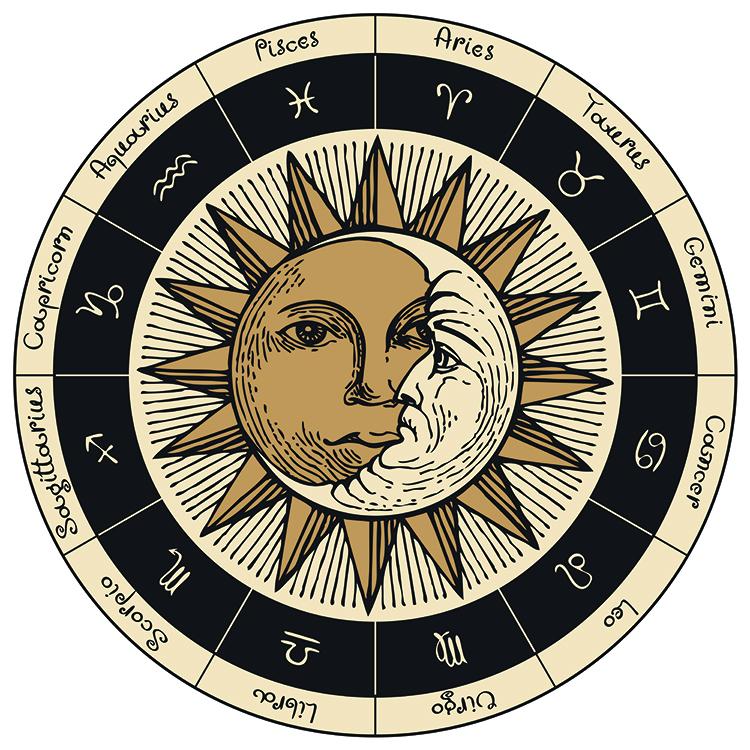
This image is property of mymodernmet.com.
Astrology and Human Psychology
Astrology as a Means of Self-Reflection
Astrology offers individuals a means of self-reflection and self-discovery. By exploring the symbolism and patterns associated with their birth charts, individuals gain insights into their personality traits, strengths, weaknesses, and inner motivations. Astrology serves as a mirror, encouraging individuals to delve deeper into their own psyche and uncover hidden aspects of themselves. It can foster self-acceptance, heighten self-awareness, and provide guidance for personal growth and transformation.
Psychological Archetypes and Zodiac Signs
Psychological archetypes, as described by Carl Jung, are universal patterns and symbols that reside in the collective unconscious. These archetypes have been associated with the zodiac signs, with each sign representing a unique expression of the archetypal energy it embodies. For example, Aries is often associated with the archetype of the Hero or Warrior, while Cancer resonates with the archetype of the Nurturer or Mother. Understanding these archetypes allows individuals to tap into deeper layers of meaning and gain a greater understanding of their own psychological makeup.
Astrology’s Impact on Personality
Astrology posits that celestial bodies’ positions at the time of an individual’s birth influence their personality and character. While scientists may debate the empirical validity of such claims, many individuals find value in astrology’s insights into their unique traits and tendencies. Astrology suggests that certain planetary influences can shape an individual’s temperament, communication style, emotional tendencies, and relationships. This perspective can offer individuals a framework for self-reflection and help them embrace and work with their inherent strengths and challenges.
Using Astrology for Personal Growth
Astrology can be a powerful tool for personal growth and development. By understanding the characteristics associated with their zodiac sign and exploring the energies represented in their birth chart, individuals can identify areas for self-improvement and cultivate positive change. Astrology provides a language to acknowledge and work with individual strengths and weaknesses, guiding individuals towards a more authentic and fulfilling life. Whether through self-study or with the assistance of an astrologer, astrology offers a roadmap for personal growth and transformation.
Astrology in Different Cultures
Western Astrology
Western astrology, also known as tropical astrology, is the most widely practiced form in Western countries. It originated in ancient Greece and draws heavily from Babylonian and Hellenistic astrological traditions. Western astrology is based on the tropical zodiac, which divides the sky into twelve equal parts based on the position of the Sun at the vernal equinox. It emphasizes personality traits, character analysis, and relationship compatibility.
Chinese Astrology
Chinese astrology, also known as the Shengxiao or the Chinese zodiac, is a unique system that associates twelve animal signs with specific years in a twelve-year cycle. Each sign is said to influence personality traits and predict one’s destiny. Chinese astrology also takes into account the five elements (wood, fire, earth, metal, and water) and their interactions to provide a deeper understanding of an individual’s character and life path.
Vedic Astrology
Vedic astrology, or Jyotish, has its roots in ancient India and is considered a sacred science in Hindu culture. Vedic astrologers believe that the positions of celestial bodies at the time of an individual’s birth have a significant influence on one’s destiny. It encompasses a wide range of techniques, including the use of unique Nakshatras (lunar mansions), yogas (planetary combinations), and dashas (planetary periods). Vedic astrology is deeply intertwined with Hindu philosophy and is used for guidance in various life aspects, including marriage, career, and spirituality.
Mayan Astrology
Mayan astrology stems from the ancient Mayan civilization, which flourished in Mesoamerica. Unlike other astrological traditions, Mayan astrology focuses on the sacred calendar, known as the Tzolk’in. The Tzolk’in consists of 260 days and combines 20 day-signs with 13 numbers to create a unique astrological profile for individuals. Mayan astrology emphasizes the interconnectedness between humans, nature, and the cosmos, providing guidance on various aspects of life, including relationships, health, and personal growth.
Other Astrological Traditions
Astrology has also played a significant role in various other cultures and traditions throughout history. From the intricate astrological charting practices of the ancient Egyptians to the celestial teachings of the Indigenous peoples of the Americas, astrology has been woven into the fabric of diverse societies. Each culture developed its unique astrological systems, often blending celestial observations with mythology, religion, and local practices. These astrological traditions continue to be celebrated and embraced by communities around the world.
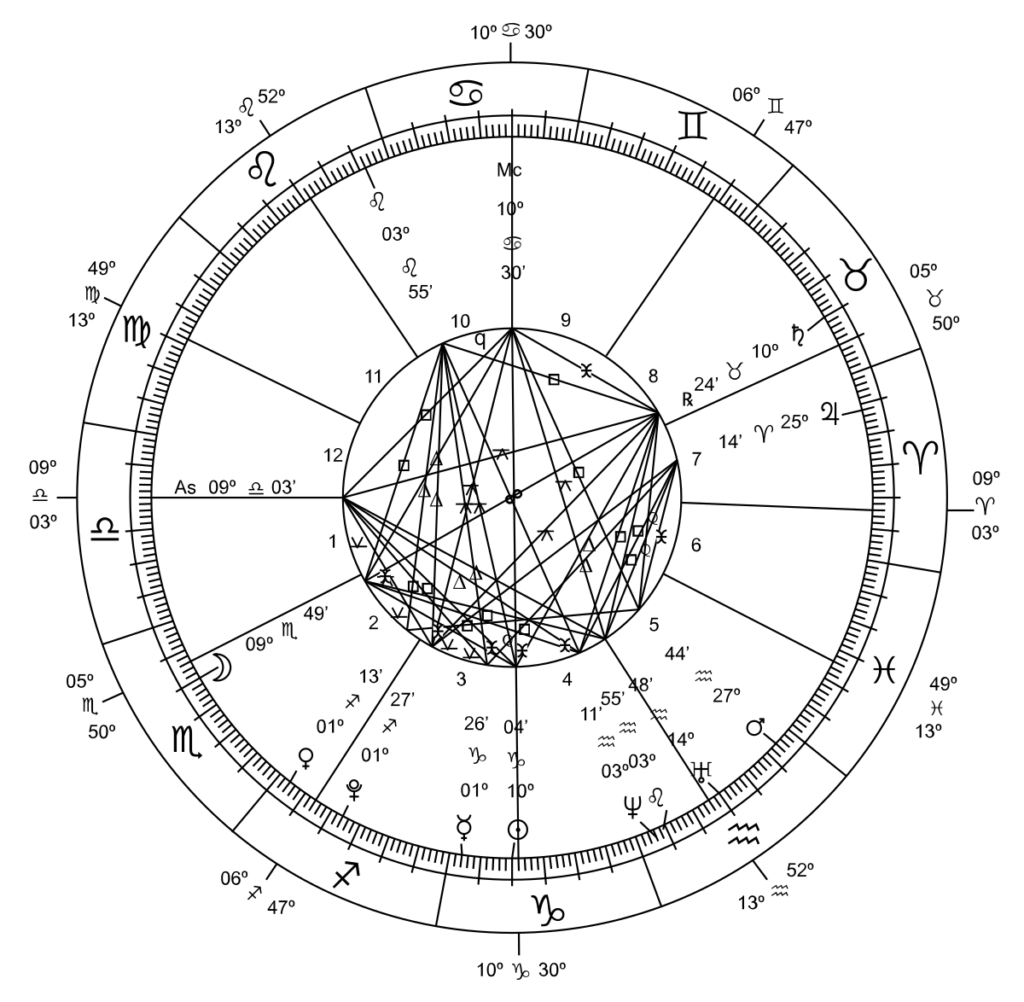
This image is property of upload.wikimedia.org.
Criticism and Skepticism
Scientific Skepticism
Astrology has long faced criticism from the scientific community, which regards it as a pseudoscience due to the lack of empirical evidence supporting its claims. Skeptics argue that the correlations between celestial bodies and human events are mere coincidences or the result of cognitive biases. They refute astrology’s predictive capabilities and question the scientific validity of the astrological principles. While astrology may not meet the rigorous standards of scientific inquiry, proponents argue that its value lies in its subjective and symbolic interpretations.
Critiques from Religious Perspectives
Astrology has faced criticism from religious perspectives as well. Some religious traditions consider astrology to be in conflict with their teachings, deeming it a form of divination or idolatry. Certain interpretations of monotheistic religions, such as Abrahamic faiths, discouraged or prohibited the practice of astrology. Religious critics argue that relying on astrology diminishes the belief in an all-knowing deity and fosters a dependence on fortune-telling rather than divine guidance.
Determinism vs. Free Will Debate
One of the most significant debates surrounding astrology is the question of determinism versus free will. Critics argue that astrology’s emphasis on predetermined destiny and the influence of celestial bodies undermines the notion of individual agency and personal responsibility. They contend that astrology extinguishes the belief in human autonomy and places undue emphasis on external factors. Proponents of astrology, on the other hand, argue that it offers guidance and insight into potential avenues of growth, helping individuals make informed choices while acknowledging the influence of cosmic energies.
The Evolution and Future of Astrology
Adaptation to Modern Technology
As technology advances, astrology has adapted to the digital age. Astrological software and websites now offer easy access to birth chart calculations, personalized readings, and compatibility reports. Online platforms provide instant access to astrological practitioners, facilitating consultations and personalized guidance from anywhere in the world. The availability of mobile apps and social media platforms has also contributed to astrology’s widespread popularity, enabling people to engage with astrology at their convenience.
Integration with Psychology and Personal Development
Astrology’s integration with psychology and personal development continues to shape its evolution. Modern astrologers draw from psychological theories and frameworks to deepen their understanding of astrological symbolism and its impact on human behavior. This integration has resulted in the emergence of psychological astrology, which combines astrological insights with therapeutic approaches. Astrology is increasingly being utilized as a tool for self-exploration, personal growth, and aligning one’s life with their authentic self.
Astrology’s Role in Contemporary Society
Astrology continues to hold cultural significance, bridging the realms of psychology, spirituality, and popular culture. Amidst the complexity and uncertainties of modern life, astrology offers individuals a sense of connection and belonging to something greater. Whether as a source of personal guidance, a form of entertainment, or a topic of fascination, astrology continues to captivate people worldwide. Its significance in contemporary society lies in its ability to provide individuals with meaning, self-reflection, and a sense of awe and wonder in the face of the vast cosmos.
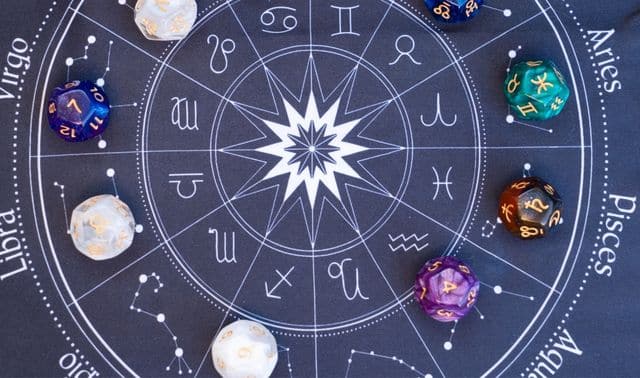
This image is property of familytreemagazine.com.

